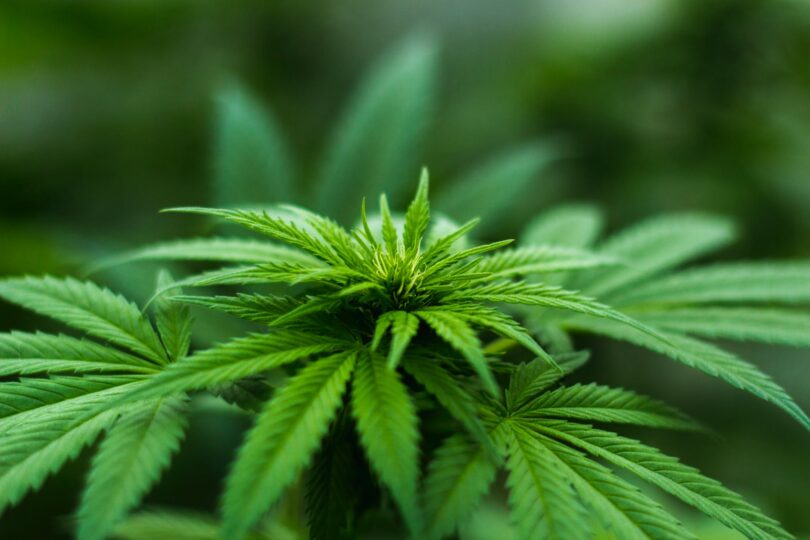Luxembourg announced plans in 2017 to legalize medical cannabis use, and the following year it announced its intention to legalize adult use also. Details for plans that would have legalized and regulated the production and sale of cannabis for non-medical adults were due to be presented to Parliament in 2019, but were put off due to the pandemic. However, Paulette Lenert, the new Minister of Health, confirmed in February that the plans were still in progress and that intensive exchanges were taking place between the ministries in order to complete and optimize them.
Under the new legislation, adults over 18 years of age will be allowed in Luxembourg to use cannabis and grow up to four plants per household, making Luxembourg the country the first in Europe to legalize the production and usage of cannabis. Adults in Luxembourg are now allowed to grow four cannabis plants in their home gardens under a law that will make the European Union (EU) member state the first in the region to legalize the production or consumption of the plant.
Friday’s announcement is expected to mark a major shift in the nation’s approach to recreational use and cultivation of cannabis in light of the failure of the ban to deter use.
The law will make it the first country in Europe to legalize the production and use of the drug and people over 18 years old will be able to grow up to four cannabis plants for personal use in the home. Sales and distribution will also be decriminalized, paving the way for a state-regulated supply chain and a market for cannabis products. Registered drug users will be allowed to buy marijuana over-the-counter from licensed pharmacies beginning in April.
The Maltese government decriminalized recreational cannabis use in 2015 and legalized medical use in 2018. Other countries have decriminalized possession of marijuana, with the Netherlands allowing it to be sold in coffee shops and Uruguay becoming the first nation to legalize entire chains that grow the plant and buy and sell its leaves. Several countries, such as Canada, the Netherlands and Israel, have legal programs for the cultivation of medical cannabis, but do not permit the cultivation of marijuana for recreational use.
In 2018, the Luxembourg coalition government announced plans to legalize and regulate the production and sale of cannabis for non-medical adults – and became the first European country to introduce such reforms. The three parties that formed the governing coalition in Luxembourg have included the legalization of recreational cannabis in their government agenda, driven by younger members. There is a possible model for Luxembourg, with the US state of Colorado being the first country to legalize recreational cannabis.
If Luxembourg becomes the first European country to legalize the use of cannabis, it will not be long before other European countries follow suit. Luxembourg is one of the smallest countries in Europe and is said to be the first to legalize cannabis for recreational use. The country wants to go even further and be the first country in the European Union to legalize cannabis.
The Luxembourg government will be the first in the European Union to legalize the cultivation of cannabis, reported local media on Friday. Concerns have been raised about Luxembourg’s intention to become the first European country to legalize cannabis for adults.
Depending on developments in the Netherlands, Switzerland will probably be the first country in Europe to legalize cannabis production for non-medical use by adults. Switzerland has opted for state control over the administration, cultivation and distribution of cannabis for personal use by its adult citizens. Under the proposed legislation by Schneider and Justice Minister Felix Braz, Luxembourg will legalize the entire cannabis market, issue licenses for its production and allow its use in a regulated structure.
Luxembourg already allows medical cannabis and decriminalizes possession of small quantities for recreational use. In the Netherlands, a European country often associated with a relaxed attitude towards cannabis use, its recreational use, possession and trade are still illegal. However, the Netherlands has a tolerance policy, which is generally accepted as within the borders.
Cannabis is widely used in most countries, including in the EU, the United States and Canada. However, there are different approaches to cannabis legislation in these countries. The Spanish law differs from other countries in Europe in that it does not distinguish between recreational and medical cannabis use.
The recreational use of cannabis has been illegal in Switzerland since 2011, but the sale of cannabis products are legal as long as they contain less than 10% THC, compared to the usual 0.2% permissible in many other European countries.
Following the public vote on the decriminalization of cannabis, the purchase, sale and cultivation of cannabis will become legal. Cannabis users can buy a maximum of 40 grams per month from licensed pharmacies and must be Uruguayan citizens over 18 years of age and register in a state database to monitor their monthly purchases. Critics say legalization would increase use of Hard Drugs such as marijuana, which 8 percent of Uruguayans regularly consume, according to government statistics.
The first view is that the aim of cannabis drug legislation is to reduce or minimize the use of cannabis. This interpretation is distorted by the fact that those who use hard drugs also use cannabis and that the vast majority of cannabis users (74%) do not use hard illegal drugs. Many adolescents, and to a lesser degree adults, use tobacco and marijuana by mixing the two, smoking blunts (hollow cigars filled with marijuana) or smoking one or the other.




